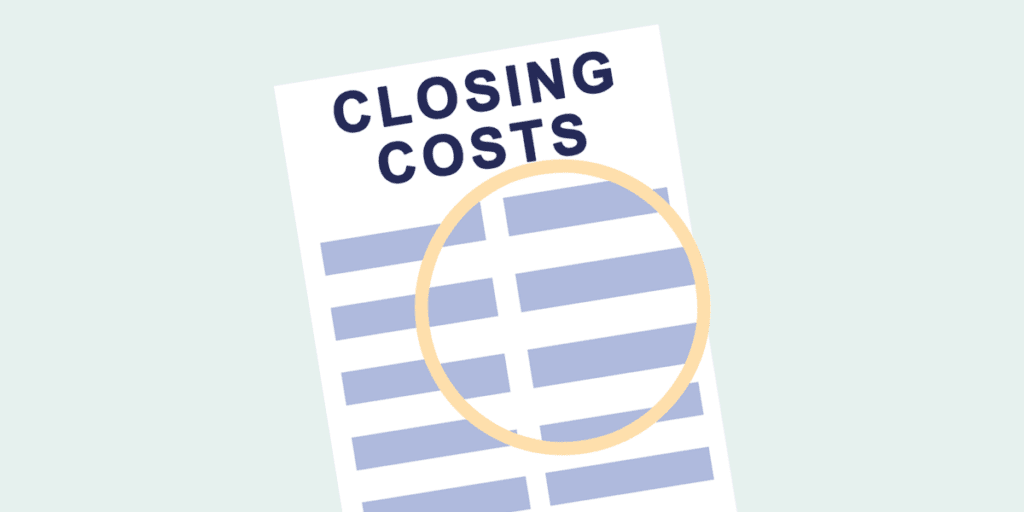How much are seller closing costs for a home sale?
We put together this list of frequently asked questions to shed some light on what you can expect at the closing table, if you sell your house on the market. Be sure to take a look at our closing cost calculator below to help understand net proceeds from a home sale.
Closing costs for a seller are a combination of taxes, fees and costs associated with a home sale. While closing costs can vary between the seller and the buyer, each party typically assumes some portion of the total burden. If you’re in the market to sell your home, it’s important to understand what closing costs entail so you’re prepared when it comes time to sign on the dotted line. Keep in mind seller closing costs fluctuate according to factors including location, negotiation and the circumstances relevant to your individual sale.
Frequently Asked Questions (FAQ’s)
What are closing costs?
Closing costs are a combination of taxes, fees and costs associated with a home sale. In most transactions, the buyer assumes most of the closing costs, but the seller may be responsible for some significant closing costs as well.
As a seller, you’ll need to pay off any existing mortgage and second mortgage with the proceeds from the sale. After the buyer wires the purchase price to the escrow company, the escrow company oversees the closing process. This company will handle the disbursement of money, administration of necessary documents and other items needed to close the sale of the house.
What’s included in closing costs?
| Buyer | Seller | |
| Agent Commissions | X | |
| Conveyance Fee | X | X |
| Escrow Fees | X | X |
| HOA | X | |
| Attorney Fees | (Varies by State) | |
| Property Taxes | X | |
| Credits Toward Closing | (Varies by Transaction) | |
| Owners Title Insurance | X | |
| Appraisal Fees | X | |
| Credit Report | X | |
| Loan Origination | X | |
| Application Fee | X | |
| Home Inspection | X | |
| Survey Fee | X | |
| Title Insurance | X | |
| Title Examination Fee | X | |
| Notary Fees | X | |
| Recording Fee | X | |
| Home Warranty | X | |
What’s not included in closing costs?
Prepayment Penalty:
Some lenders may charge a prepayment penalty for paying off a loan early. This is a one-time payment that is made at closing to the mortgage lender.
Home Improvements:
In order to get top dollar for your home and to affect a quick sale, you may need to renovate your house. Whether it’s cosmetic improvements such as painting or landscaping to heavier structural repairs, these will be out-of-pocket expenses that won’t be covered.
Staging Costs:
Real estate agents often recommend staging a property to help attract buyers. Sometimes an agent will cover this expense as part of their commission. Ask your agent what’s included in their commission.
Moving Costs:
These costs won’t be included with the sale of your home. But they add up into the thousands of dollars depending on the size of your move and where you’re headed.
How much are closing costs for the seller?
If you include real estate agent commissions, closing costs for seller add up to anywhere between 6% – 10% of the home’s sale price. Factoring in only closing costs, apart from agent commissions, sellers can expect to pay anywhere from 2% – 3% in closing costs.
To understand your net proceeds from a home sale, deduct closing costs from the final sale price of your home. Be sure to check out How to Calculate Net Proceeds From a Home Sale for more information on how to calculate net proceeds from a home sale.
When do you pay seller closing costs?
Closing costs are due on the day of closing. These expenses are deducted from the proceeds of the sale. Come tax season, you may be able to deduct certain closing costs from the sale of your home, so be sure to save all receipts and invoices.
Can you avoid paying seller closing costs?
Yes! To avoid closing costs altogether, you can sell your house to an off-market buyer like CoreMark Homes. Many off-market buyers, also known as cash buyers, will buy your house for one fixed price and cover all the closing costs.
Can you reduce the cost of closing costs?
It’s important to note that the vast majority of home sales incur closing costs. In fact, certain closing costs are required by law. To reduce closing costs in a traditional market sale, here’s a few tips:
Escrow Companies:
Many companies set their own prices, so it may be worth doing some research before picking an escrow company to work with.
Title Insurance:
Title insurance is meant to protect the lender and the buyer after closing. If you’ve owned the home you’re selling for a few years, you may be able to qualify for a reduced rate on your owner’s title insurance policy.
Discount Brokers:
Certain discount brokers like Homes That Click have an excellent reputation for providing excellent service with commissions as low as 1% or $2,550.00, whichever is greater. Another great discount broker is Help-U-Sell, will list your house for as little as $699.00. Finally, Ohio Broker Direct charges as little as $199.00 to list your home on the MLS. Keep in mind, a buyers agent commission of 3% will likely be included on top of the price of any discount agent.
How are closing costs calculated?
Closing costs vary by location and sales price. Because of this, it may be helpful to use an online calculator like the one we’ve included below to help you understand net proceeds from a home sale. For more information regarding hidden cost that may factor into your home sale, be sure to check out 8 Hidden Costs When Selling Your Home.
Who pays closing costs?
As a rule of thumb, sellers pay real estate agent commission fees. Buyers, on the other hand, pay a number of other closing costs, such as fees related to their loan, title and insurance. In most home sales, buyers can negotiate with sellers for reduced closing costs, as long as it fits within the lender’s guidelines. Occasionally, sellers may foot the entire bill to ensure a quick and smooth transaction, especially in a buyers market. However, the seller is never obligated to do so.

